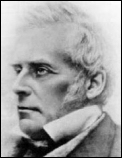Synopsis of the Books of the Bible: Matthew to John
Edición digital Logos
Overview
How does the Old Testament differ from the New Testament? Does one carry more weight than the other? The third volume of Synopsis of the Books of the Bible includes introductions to the Gospels and overviews of the New Testament in which Darby answers these very questions. In the Old Testament, he says, God has spoken. But in the New Testament, God manifests himself on earth. Most notably, however, Darby asserts that the Holy Spirit makes God clearer through the events of the world, beginning with the life and death of Christ, and continuing into God’s renewed relationship with Israel and the coming events of the rapture and Christ’s second return.
Top Highlights
“It was Jesus who could impart this to them. He thus passes from the law,24 recognized as coming from God, to its fulfilment, when it shall be as it were absorbed in the will of Him who gave it, or accomplished in its purposes by Him who alone could do so in any sense whatever.” (Page 68)
“proclaiming that the kingdom of heaven was at hand” (Page 36)
Darby left a lasting legacy for us today.
—Conservative Theological Journal
To see classical dispensationalist theology at its best, one must read Darby…
—Journal of the Evangelical Theological Society
Darby was a brilliant man…
—Moody Handbook of Theology
- Title: Synopsis of the Books of the Bible: Matthew to John
- Author: John Darby
- Publisher: Loizeaux Brothers
- Publication Date: 1950
- Pages: 580

Born in London in 1801, John Darby attended Westminster School and Trinity College, where he graduated in 1819. Darby became a lawyer, but practiced law for only one year, since he felt the nature of his profession was incompatible with his religious beliefs. He was ordained as a deacon in the Church of England in 1825, and became a priest in 1826.
As a priest, Darby became quickly disenchanted by what he perceived as the empty ritual and corrupt bureaucracy prevalent in the Church of England. He resisted the necessity of clergy, asserting that their role contradicted New Testament teaching, and claimed that the presence of clergy implicitly denied that the Holy Spirit speaks to laypersons. He gathered with other like-minded dissidents to form the movement which later became known as the Plymouth Brethren, and he formally left the Church of England in 1832.
A New Perspective
Darby’s ecclesiological pessimism gave way to a new perspective on Scripture, which later became known as dispensationalism. In Darby’s view, the scope of history is divided into seven separate dispensations, each comprising a new stage of God’s revelation. Darby advanced the following dispensationalist scheme:
- Eden to the Flood
- Noah
- Abraham
- Israel
- Under the law
- Under the priesthood
- Under the kings
- Gentiles
- The Spirit
- The Millennium
Since the church finds itself in the sixth dispensation, Darby used a literal interpretation of apocalyptic literature to predict the events of the seventh dispensation. In doing so, he systematized the notion of the secret rapture and developed an extensive pre-millennial eschatology, in which historical events can be used to predict the advent of the Millennium—the seventh dispensation.
Impact and Legacy
Later in his lifetime, Darby traveled extensively. He delivered a series of lectures in Lausanne, Switzerland in 1837, and made seven visits to the United States and Canada, where he influenced individuals such as Dwight Moody and A.J. Gordon and initiated the Bible conference movement. Darby’s influence is also found in the writings of C.I. Scofield, Charles Henry Mackintosh, and William E. Blackstone, whose writings contributed to the rise of fundamentalism in America during the early twentieth century. More recently, Darby’s impact can be felt in books by Hal Lindsay, Tim LaHaye, and Jerry Jenkins.